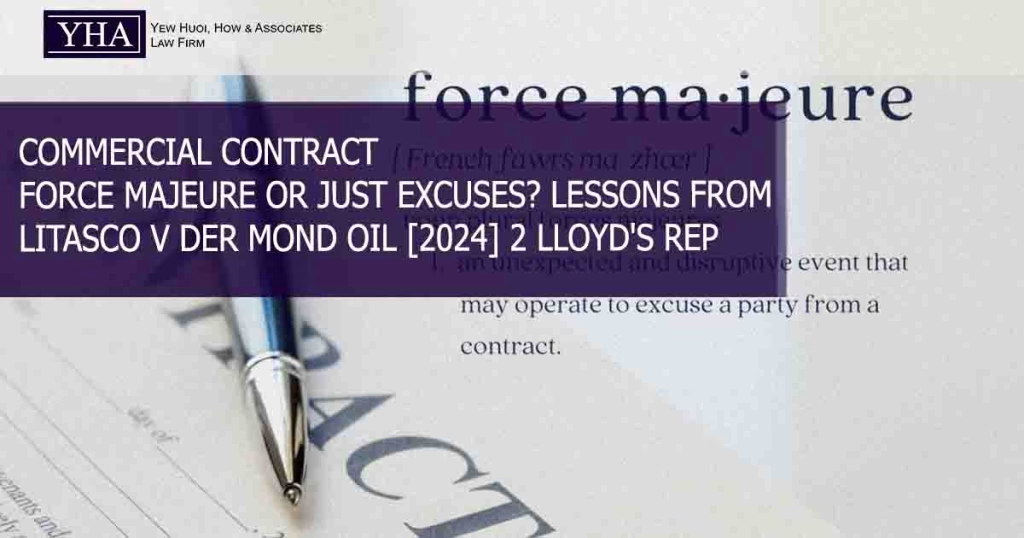Thought for a couple of seconds
SEO Keyphrase: “force majeure and trade sanctions in oil trading contracts”
Summary and Facts
In Litasco SA v Der Mond Oil and Gas Africa SA [2024] 2 Lloyd’s Rep 593, Litasco SA, a Swiss oil trading company, sought payment from Der Mond Oil and Gas Africa SA and its parent company, Locafrique Holding, for outstanding sums under a contract to sell crude oil. The defendants relied on alleged misrepresentation, a force majeure clause, and trade sanctions to defend against the claim. Litasco applied for summary judgment to enforce the payment.
The court granted summary judgment in favor of Litasco, finding no credible evidence to support the defendants’ defenses.
Legal issues
i. The defendants argued that Litasco misrepresented its intention to enter into a joint venture to induce them to sign a repayment addendum?
ii. The defendants claimed that international banking restrictions hindered their ability to make payments under the contract?
iii. The defendants cited the Russia (Sanctions) (EU Exit) Regulations 2019 to argue that sanctions rendered payment illegal or impractical?
Court Findings
i. The English Commercial Court found no evidence of misrepresentation by Litasco. The alleged joint venture discussions were non-binding and unrelated to the payment obligations.
ii. Payment difficulties arising from banking restrictions or lack of foreign currency did not qualify as a force majeure event under the contract.
iii. The sanctions clause applied only to new or amended sanctions after the agreement date. No relevant sanctions changes occurred after the agreement was signed.
Practical Implication
This case reinforces the strict interpretation of force majeure and trade sanctions clauses in commercial contracts. Businesses relying on such defenses must present clear and credible evidence to demonstrate their applicability.
For Malaysian practitioners, the decision shows the importance of detailed contractual drafting, especially concerning payment obligations and the scope of force majeure or sanctions clauses. Additionally, it highlights the necessity of maintaining robust evidence when raising defenses based on external factors like trade sanctions or banking restrictions.
Reference cases
a. Litasco SA v Der Mond Oil and Gas Africa SA [2024] 2 Lloyd’s Rep 593

